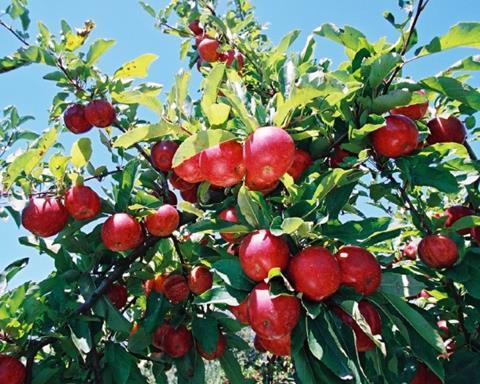
New Zealand's ministry of primary industries ‘situation and outlook for primary industries' (SOPI) report for December 2019 has forecast a rise of 5.9 per cent in horticulture export revenue for the year ending June 2020.
The increase in kiwifruit and apple and pear exports has driven the increase, which will see horticulture become New Zealand's third largest primary sector industry in export value, worth an estimated NZ$6.4bn in 2020.
Kiwifruit exports are expected to rise by 8.6 per cent to NZ$2.5bn, while apple and pear export revenue is anticipated to lift 7.2 per cent to NZ$900m.
According to the report, strong demand from Asian markets, in particular China, increased the average export price for New Zealand apples to NZ$39.50 per carton.
The reduction in China's 2018 apple crop by an estimated 25 per cent played a significant role in this increase, and helped offset the reduced demand from EU markets due to its larger domestic stocks from that years' harvest.
With more trees nearing maturity in key production areas, apple and pear exports are forecast to increase in 2020.
Chief executive of HortNZ, Mike Champan, said the results are representative of the growth in New Zealand's horticulture industry over the last decade.
'New Zealand growers produce a high quality, fresh, premium product that consumers want to purchase. This is the key to the continued growth of the industry,' said Chapman.
'For horticulture to continue to prosper like this, it is vital that government policy supports our continued growth. For example, that the proposed freshwater reforms supporting new fruit growing because of its positive impact on freshwater quality and enabling vegetable growers to rotate their crops.'
In addition, HortNZ said the primary sector council’s vision to align the food and fibre sector will also enable continued growth.
Based on the concept of taiao – the ecosystem of land, water, air and life – the vision aims to underpin the holistic nature of the food and fibre sector’s transformation.
'Taiao embodies how horticulture in New Zealand operates. It speaks to the interconnected relationships of the whole environment and its people. If we can nurture the environment, land and people, our industry will continue to prosper,' added Chapman.



